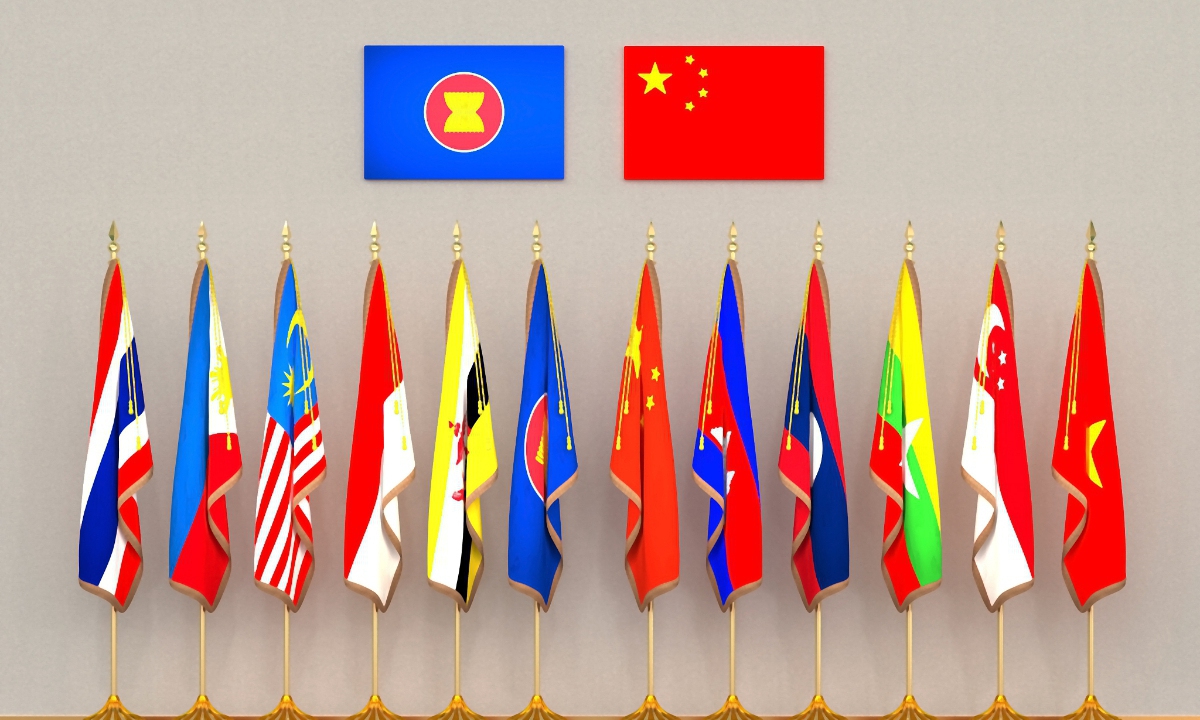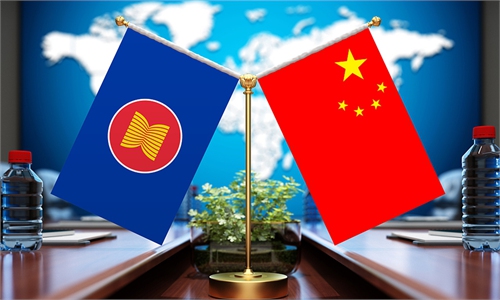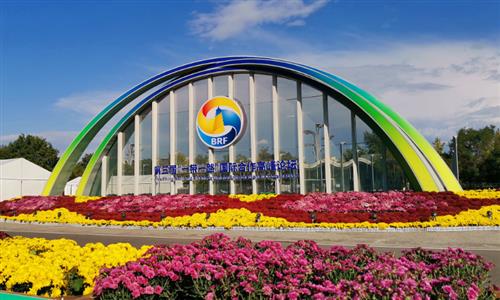Peace and development are firm consensus reached between China and ASEAN: Global Times editorial

China ASEAN Photo:VCG
The 57th Association of Southeast Asian Nations (ASEAN) Foreign Ministers' Meeting and related meetings were held in Vientiane, the capital of Laos, from July 21 to 27. The main purpose of the meetings was to prepare for the political and outcome achievements of the Leaders' Meetings on East Asia Cooperation in October later this year. Against the backdrop of global economic slowdown and geopolitical tensions, the overall situation in East Asia remains stable, with regional economic integration continuing to advance. It is the common aspiration and universal voice of the people of the region to remain an engine of development and highland of cooperation. This consensus was prominently reflected in these series of meetings.In addition to the 10 ASEAN member countries, this meeting was attended by many countries and regional organizations such as China, the US, the EU, the UK, Russia and Japan. It has become an important platform for direct communication on bilateral and multilateral diplomatic issues. The 57th ASEAN Foreign Ministers' Meeting, with the theme of "Enhancing Connectivity and Resilience," emphasized promoting infrastructure connectivity, narrowing development gaps, promoting economic integration and cultural exchanges, and emphasized resolving regional disputes based on international laws such as the United Nations Convention on the Law of the Sea. These signs all indicate that peace and development have become the biggest consensus and firm choice of ASEAN countries. China is a fellow traveler in this vision of ASEAN. This is rooted not only in the historical genes of mutual recognition and pursuit of independence and mutual respect between China and ASEAN countries as developing countries, but also in the practical need to further strengthen relations in response to turmoil and challenges.
In recent years, whenever ASEAN meetings are held, some media outlets have predicted that the South China Sea will become a major topic. However, this has not been the case, as the behavior of external powers stirring up trouble in the region has not received collective approval from ASEAN. On the South China Sea dispute, the joint communique of the ASEAN Foreign Ministers' Meeting is closer to China's position, both advocating peaceful resolution of disputes and resolving disputes through political means rather than resorting to force.
Despite facing various disruptions and challenges, the atmosphere of "cooperation first, development priority" presented at the ASEAN meetings once again demonstrates that ASEAN countries are determined to stick to their own path rather than accept an agenda imposed by others. The joint communique of the ASEAN Foreign Ministers' Meeting clearly reaffirms their commitment to upholding regionalism and multilateralism, emphasizing the maintenance of existing ASEAN-led mechanisms, in promoting peace, stability, security, development, growth to enhance regional resilience to respond to common and emerging challenges. Most ASEAN countries are tired of and resistant to "taking sides" and are unwilling to become appendages or pawns of major powers, which is a fundamental reason why the ASEAN meetings will not become a "home game" for the US.
If we must "take sides," most of East Asia, including ASEAN, will definitely stand for regional peace and development. The China-ASEAN relationship has become the most successful and dynamic model of cooperation in the Asia-Pacific region. ASEAN has reaped development opportunities in its cooperation with China, and the entire East Asian region has consistently ranked among the top contributors to global economic growth.
Openness and inclusiveness are the important foundations and keys to the success of China-ASEAN cooperation. In contrast, today's Biden administration's "Indo-Pacific strategy," US' engagement with ASEAN has been increasingly tinged with "Cold War sentiments," putting pressure on ASEAN countries. As Indonesian President Joko Widodo said at an ASEAN summit last September, "the partnership will only be possible through a strong commitment by both parties in maintaining regional peace and stability." Peace and stability are preconditions for development. Manipulating so-called "security issues" may bring short-term investment and trade chips, but getting caught up in geopolitical disputes and conflicts will exact an unbearable cost on the region, a fact that ASEAN countries know.
China and ASEAN are friendly neighbors who help each other, intimate partners, and a community of shared future in honor and disgrace. Accelerating negotiations for the ASEAN-China Free Trade Area 3.0, tapping into the potential of emerging industries such as artificial intelligence and financial cooperation, and hosting the China-ASEAN Year of People-to-People Exchanges are all on the shared wish list of both sides. After 33 years, China-ASEAN dialogue and cooperation have entered a mature and stable period, with peace and development becoming an even stronger consensus between the two sides.



